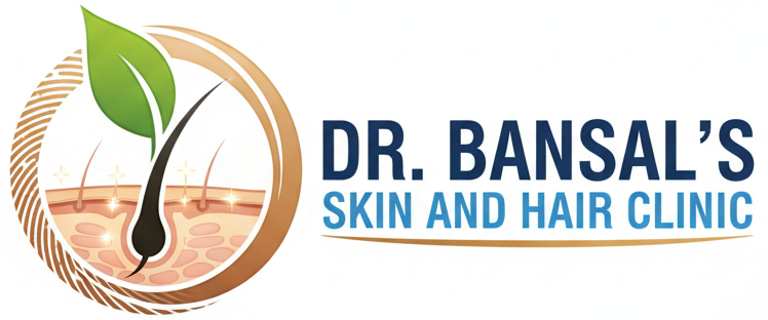Pemphigus Vulgaris Treatment in Indore
Dr. Bansal's Skin Clinic, Indore
Pemphigus vulgaris is a rare, serious autoimmune skin disease characterized by painful blisters and erosions of the skin and mucous membranes, especially within the mouth, nose, throat, eyes, and genital area.
In this disease, the immune system mistakenly attacks healthy skin cells, specifically proteins, known as desmogleins, that help skin cells stick together.
The skin layers consequently separate, and even minor friction and light touch can lead to easy blistering.
It is not contagious but can become life-threatening if left untreated because of infection or loss of fluid.
Description/ Symptoms
Painful blisters on the skin and inside the mouth (first sign in many cases)
Erosions and ulcers after blisters rupture
Fragile skin, which peels off easily when rubbed (Nikolsky's sign positive)
Difficulty eating or swallowing because of mouth sores
Blisters may appear on the scalp, face, chest, back, or genitals
Treatment of Pemphigus Vulgaris
The most important aims are to prevent blister formation, facilitate healing of existing lesions, and avoid infection.
Treatment will require long-term care under a dermatologist's or immunologist's supervision.
1. Corticosteroids (Mainstay of Treatment)
Prednisolone/Prednisone - first-line medication for the rapid reduction of inflammation and immune activity.
Given initially in high doses to control the disease, then gradually reduced (tapered).
It can be given orally or intravenously in severe cases.
2. Immunosuppressive Drugs
Used with steroids to minimize the immune attack and decrease steroid side effects:
Azathioprine
Mycophenolate mofetil
Cyclophosphamide
Methotrexate
They help maintain remission once the disease is under control.
3. Biologic Therapy
Newer treatments that target specific immune cells:
Rituximab (Rituxan) - a monoclonal antibody that destroys abnormal immune B cells
GI glucocorticoids: Effective and widely used for moderate to serious or steroid-resistant disease.
4. Corticosteroid-Sparing Therapies
To decrease dependency on high-dose steroids:
Intravenous immunoglobulin: This can help neutralize damaging antibodies.
Plasmapheresis (plasma exchange)– removal of disease-causing antibodies from the blood
Biologic agents (e.g., rituximab, newer monoclonal antibodies).
5. Supportive and Symptomatic Care
Antibiotics or antifungals – prevention or treatment of skin infections.
Pain relievers and topical anesthetics for mouth sores.
Wound care — keep blisters clean and covered with sterile dressings.
Soft diet – this will help avoid pain and irritation from mouth ulcers.
Proper hydration and nutrition--very important in severe cases.
Prevention and Self-Care
While Pemphigus Vulgaris cannot be prevented, flare-ups can be reduced with care:
Avoid trauma and friction to the skin by handling it carefully.
Avoid spicy or acidic foods if there are mouth sores.
Avoid UV exposure, as sunlight can precipitate symptoms.
Control stress, as it can exacerbate the symptoms.
Avoid certain medications (such as penicillamine, ACE inhibitors) known to trigger pemphigus; use only drugs approved by your doctor.
Follow up regularly with your dermatologist to adjust medications safely.
⚠️ Important Notes: Early diagnosis and treatment significantly enhance the chances of recovery. If left untreated, this can cause dehydration, infection, and serious complications. The majority of patients can achieve long-term remission with appropriate therapy.
Care
Dr. Shreyas Bansal has over 46 years of experience in promoting hair health and wellness. At Dr. Bansal’s Homeopathy Clinic, located at 2 Manish Bagh, Sapna Sangeeta Road, Indore, we provide personalised care to strengthen your hair, improve scalp health, and restore confidence naturally.
Health Hairs AT
Beauty
+91 9926120111
© 2025. All rights reserved.
